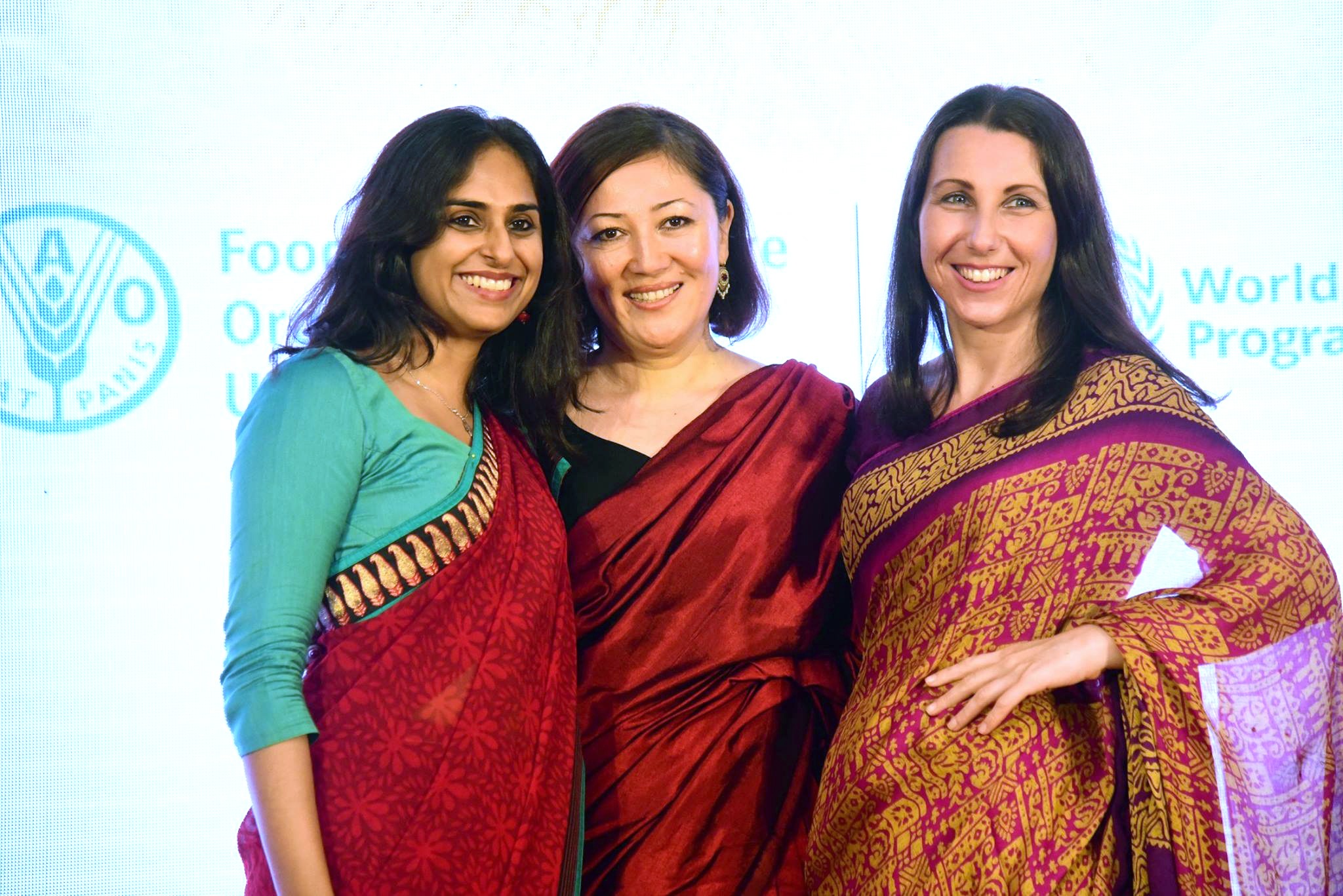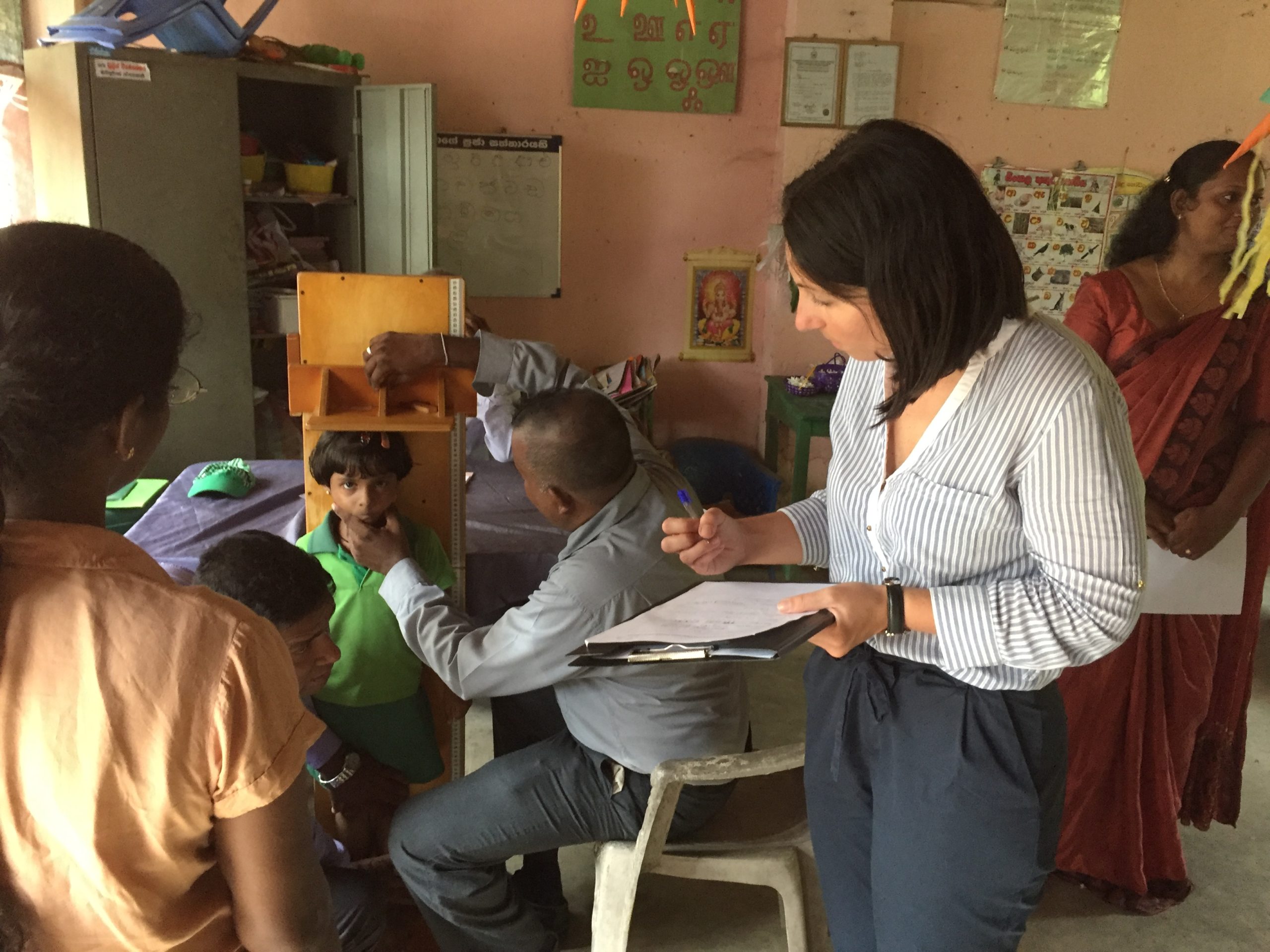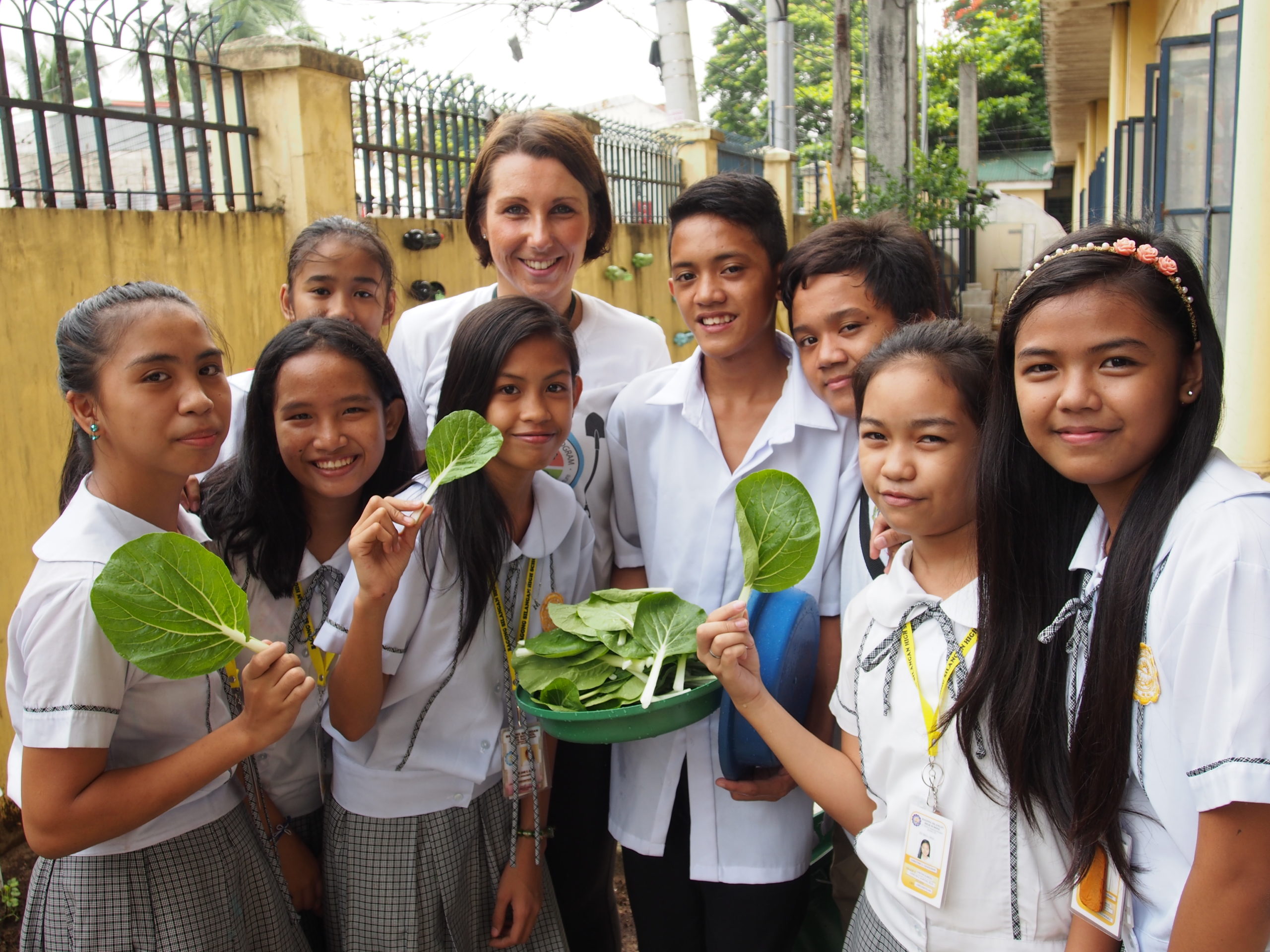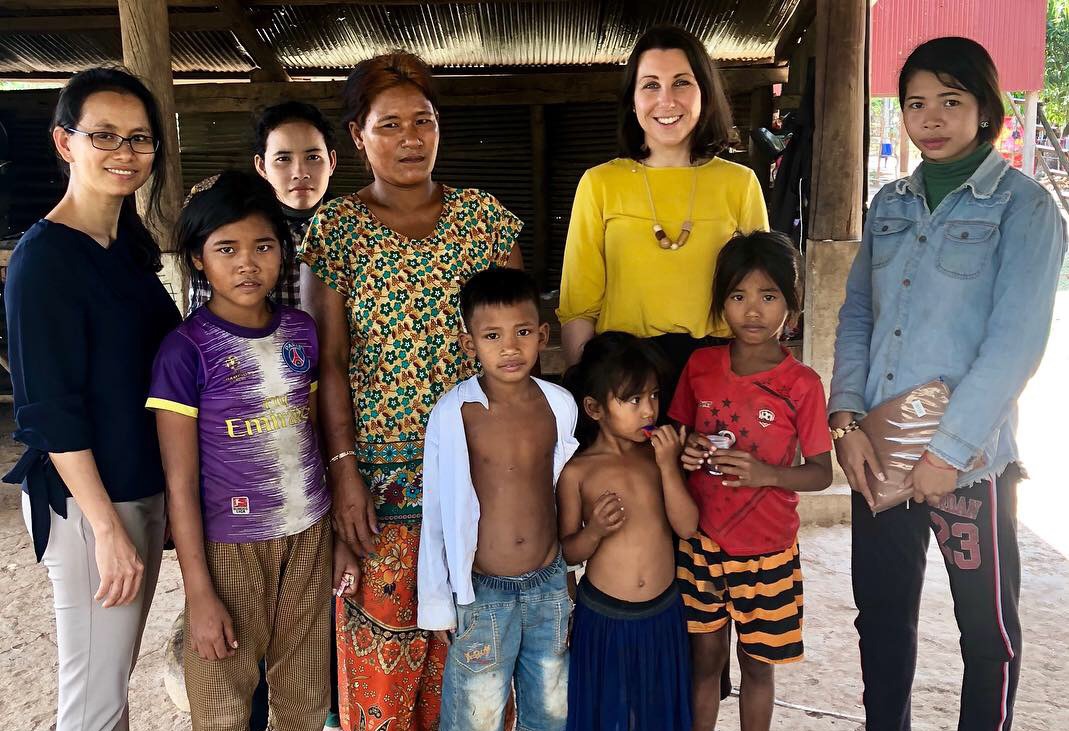

Nutrition Pathway to Ag for Development – A passion for Nutrition to Support Others
March 29, 2021

The Crawford Fund first connected with Maree Bouterakos when she was supported to attend our 2018 conference in our scholarship program. As a Dietitian / Nutritionist, the conference topic ‘Reshaping Agriculture for Better Nutrition: The Agriculture, Food, Nutrition, Health Nexus,’ was particularly pertinent to Maree’s interests, as she already had experience in international development across the Asia-Pacific region. Maree is from Melbourne, sits on our Victorian Committee, and is currently working in Laos as the Head of Nutrition for the United Nations World Food Programme.
As a Greek-Australian, food is so much more than sustenance – it’s about culture, comfort, family and life itself. Since a young child, I have been interested in food, agriculture, nutrition and cooking. Growing up in a Greek household, on a farm on the outskirts of Melbourne, good quality food was important, and cooking meals from scratch with my family and sharing the meal together were deeply fulfilling and nurturing. It was a way of showing love and affection, but also the importance of nutritious food for health and wellbeing.
Growing up on a farm, it meant that almost everything I ate, my family grew and reared themselves, from fruit, vegetables, livestock, olive oil, etc. It was my grandparents whom I lived with who managed the farm. It was through them I learnt about growing food and food value chains, and the importance of good nutrition and how agriculture can support that. I knew I wanted to work in the food industry, but also wanted to apply the science behind it, and find ways that others can also enjoy nutritious food.

This motivated me to become a dietitian. I completed my Bachelor and Master degree at Deakin University in Melbourne. My tertiary education enabled me to develop a solid understanding of food science and nutrition, the factors that influence people’s food choices and how to achieve optimal nutrition status. I now apply this in my position in one of the world’s largest humanitarian organisations, working with communities to improve nutrition and build resilience, the World Food Programme (WFP). I feel privileged to apply the knowledge gained through my upbringing, culture and education together with my passion for nutrition to support others.
My first exposure to working overseas was short-term volunteering in Mexico and Cambodia. Both positions involved working with young children in an education setting and supporting the school meal program by linking small holder farmers in the provision of nutritious foods. This exposure, whilst short, provided further motivation and understanding of a career in international development.
After several years working in clinical dietetics in hospitals in Australia, I became an Australian Volunteer for International Development (now the Australian Volunteers Program) volunteer . My first assignment was with the Nutrition Foundation of the Philippines, initially for 6 months. My experience in the Philippines really paved the way for my career in international development. I connected with many professionals in the sector, learnt how aid funding operated and further refined my skills in nutrition programming. I was able to see the links between agriculture and nutrition in developing countries so much more clearly and learnt how to operationalize that knowledge.

Since my time in the Philippines, I have worked in Sri Lanka, Cambodia, Ethiopia, Italy (at headquarters) and now in Laos. These positions have all been with the United Nations – first with the Food and Agriculture Organization and now with the WFP.
In my current role in Laos, I advise on ways to achieve food and nutrition security so that the poor can afford a nutritious diet. For example, many children in Laos go to school hungry, which impacts their ability and concentration in school, which has a lasting impact on their lives and the productivity of the country. WFP provides a nutritious school meal. Many children grow up malnourished, as their mothers do not have adequate nutrition, and this could be due to lack of knowledge, living in a remote community, beliefs about food and feeding practices, and deep-rooted poverty. WFP delivers communication strategies to support positive change in behaviours to consume healthier diets and supports livelihood development by linking small holder farmers to markets, to improve the affordability of nutritious foods and generate income for the poor. These activities, amongst others, are just some of the amazing work that the WFP does and for which it was recognised in the award of the Nobel Peace Prize in 2020.
I have worked with professionals from all around the world and travelled to so many countries, and I feel that my learning and career journey has only just begun. However, whilst working overseas with the UN may seem very glamorous, and despite how rewarding this life and work is, there are many challenges. You must accept a lot of risk and make sacrifices when you choose this life. The obvious sacrifice is being away from home, separated from family and friends. Also, there are many uncertainties in terms of future job prospects, as the work is based on external funding. It is also extremely competitive, with many young professionals wanting to break into this sector and high standards placed by organizations. Acknowledging this, I have always been realistic and accepted the competitiveness of this career path. Whilst I always had a clear idea of my goals and aspirations, I have also kept an open mind to all opportunities and sometimes accepted decisions that would mean being completely out of my comfort zone.

My advice to those interested in a career in international development would be get out there and out of your comfort zone. Check out the Australian Volunteers Program – this has assignments across the Asia-Pacific region that range from 3-18 months. Once overseas, and even in Australia, network, because the sector is small, and it’s all about who you know. Events, such as those arranged by The Crawford Fund, provide opportunities to learn more about the structure and strategic priorities of key organisations, and who the key players are. Understand your skills gained in other practice areas and how they are transferable to the development sector. Everything you do gains professional and personal competencies that can be related to international development. It is important to have a strong understanding of international policy and international relations. Finally, be open and flexible – there are so many ways that nutritionists can support international programs – both nutrition specific, such as maternal and child feeding, but also nutrition-sensitive – through school gardens and agriculture projects.
Finally, I also encourage you to join Researchers in Agriculture for International Development (RAID) Network. It’s free and will help with all the opportunities listed above.




